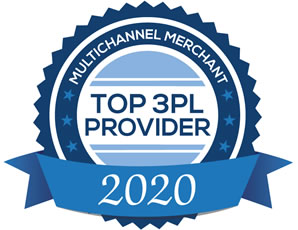
Which Type of Fulfillment Service is Right for You?
Dan Cence, CEO Sprocket Express
.jpg) From a fulfillment warehouse perspective, eCommerce businesses have a unique set of service needs. Third-party logistic companies (3PLs) have made significant technical changes in recent years to adapt to the new market structure and the consumer’s need for speed and transparency.
From a fulfillment warehouse perspective, eCommerce businesses have a unique set of service needs. Third-party logistic companies (3PLs) have made significant technical changes in recent years to adapt to the new market structure and the consumer’s need for speed and transparency.
Within the online marketplace, each category has different support needs. When choosing an order fulfillment service, it’s useful to keep in mind that some providers are better adapted to particular types of clients. There are five categories of eCommerce businesses with different approaches.
The Outsourcer: This is an established company that sells products through traditional retail or wholesale channels and has decided to outsource their ecommerce business. They sell primarily through an established website and a single channel, and have skilled business and technical staff that work with the fulfillment company to implement an integrated process. Often, these companies have their own technical platforms and require customization to connect to the warehouse for order capture and post-shipment reporting.
The Offshore Company: This client typically has an existing ecommerce business overseas that has been “discovered” by Americans who are ordering product. Given the high cost and lag time in handling B2C offshore shipments, the company needs a partner in the United States to be their local “arms and legs.” Having a U.S. base helps reduce their transportation costs and improve response times. Outsourcing fulfillment presents challenges with time zones, language/communication, customs, and the establishment of U.S. business entities to handle import duties and taxes. These clients are similar to the Outsourcer, but have the added layer of dealing with a foreign company.
The Entrepreneur: The rapidly falling costs of running an ecommerce business, coupled with the low-entry costs of participating in major marketplaces like Amazon and eBay, have enabled many more people to be able to afford to run an online store. This has created an industry of one-person small businesses and part-time entrepreneurs that usually have other jobs outside of ecommerce. While the failure rate for these ventures is high, a small percent become successful, either because they have a unique product or hold a niche in the marketplace.
When filling orders or storing inventory gets to be overwhelming, the Entrepreneur needs a company to support their fulfillment. These businesses—especially the part-timers—may lack the support structure of an established business and look to the fulfillment company to be more than someone who stores product and ships orders. They may need IT support, business-process design, business consulting, purchasing, assembly, and other back-office services. The Entrepreneur can often benefit from an experienced warehouse’s business and technical coaching. This segment benefits from a highly sophisticated, self-service business model. (Think ATM machines!) Most fulfillment centers offer automated interactions to profitably support this customer segment.
The Multi-Channel Marketer: This is the eCommerce business that has progressed beyond selling through a single website. Marketplaces may include Amazon, eBay, Buy.com, Fab.com, to name just a few. They may be involved in direct TV, small retail or even large retail (Best Buy, Kohl’s, Walmart). They may sell through drop shippers or boost volume with flash sales. Order volumes in this category may be high, but a high level of technical support is often required, particularly in the setup phase. Each selling channel has a unique fulfillment flow. Significant IT challenges exist in supporting the special selling, branding, distribution and reporting requirements of each channel. EDI capabilities will often be required. Undoubtedly, the future of ecommerce selling is through multiple channel marketplaces.
Omni-Channel Selling: When a customer interacts with your company in different channels, but their experience feels seamless, this is called omnichannel selling. It differs from multi-channel selling in that the interactions are all connected in one central data hub. This is a customer-centric experience with a powerful impact. For example-- you sell in stores, social media, by phone, and through mobile shopping, and your customers can move between the channels without obstacles. They can order online and pick up in the store, or visit your Facebook profile and then order via mobile app. This strategy retains the most customers and offers them the most options. Plus, your analytics are more meaningful because they cover all channels to give you an acurate picture of your entire operation. Platforms such as Shopify and BigCommerce are excellent foundations for omnichannel selling.
What this means to you: It's clear that each business has its own priorities, but understanding the categories will help you select the right fulfillment center for your needs. Sprocket Express has coached many clients on supply chain and logistics strategies. Read our fulfillment transition guide to help you plan a successful move that causes little or no disruption to your customers.
Business Tips and Industry News
For more news and tips on all things business and e-commerce, visit our e-zine. Our e-zine is also available as an rss feed.



